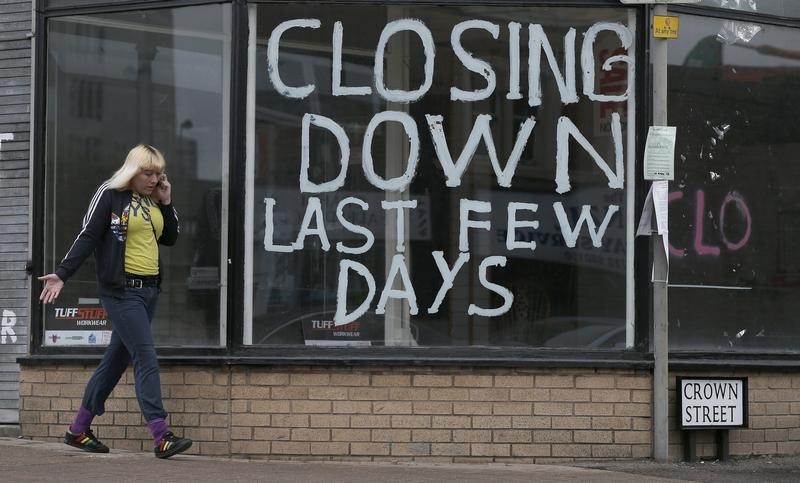LONDON (Reuters) - Nearly three times more shops disappeared from Britain's high streets in 2014 compared with 2013, as retailers struggled with the advance of online sales and changing consumer habits, a report published on Monday showed.
According to PwC research compiled by the Local Data Company (LDC), 5,839 outlets closed in 2014 compared with 4,852 openings, a net reduction of 987 shops. The net reduction in 2013 was 371.
The study of multiple retailers in 500 town centres across Britain showed the sector's changing profile.
Some 765 more traditional shops, such as clothes and shoe shops, closed. Service retailers, such as opticians, travel agents, hairdressers and recruitment agencies, saw a net decline of 457.
Leisure stores, including food, beverage and entertainment, continued to thrive, adding 233 stores.
Charity shops, coffee shops, tobacconists/E-cigarettes, pound shops and betting shops were also among those opening the most branches during 2014.
"This year's numbers expose the harsh impact of macro changes on the high street, especially in certain sub-sectors," said Mike Jervis, insolvency partner and retail specialist at PwC.
"Regulation has blindsided the money shops, the advance of technology has hammered some phone operators and the internet continues to dent the clothing sector. Despite the benign economy, the net loss of shops has accelerated."
Insolvencies in 2014 included mobile phone retailer Phones4U, film rental chain Blockbuster, pawnbroker Albemarle & Bond, and underwear shop La Senza.

The outlook for UK consumer spending, which generates about two thirds of gross domestic product, has been improving. Wages are recovering after growing by less than inflation for much of the period since the financial crisis whilst shop prices are barely rising.